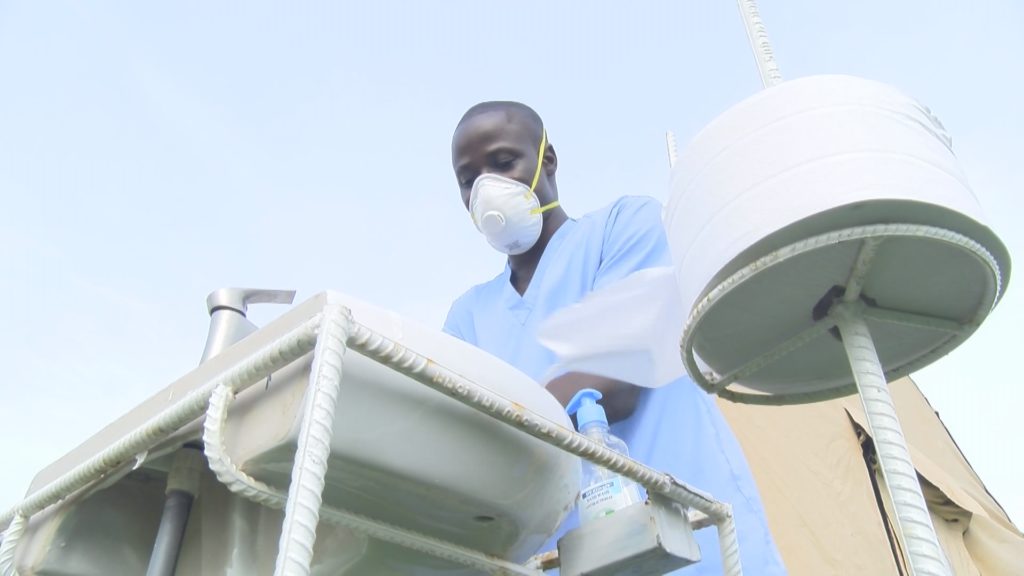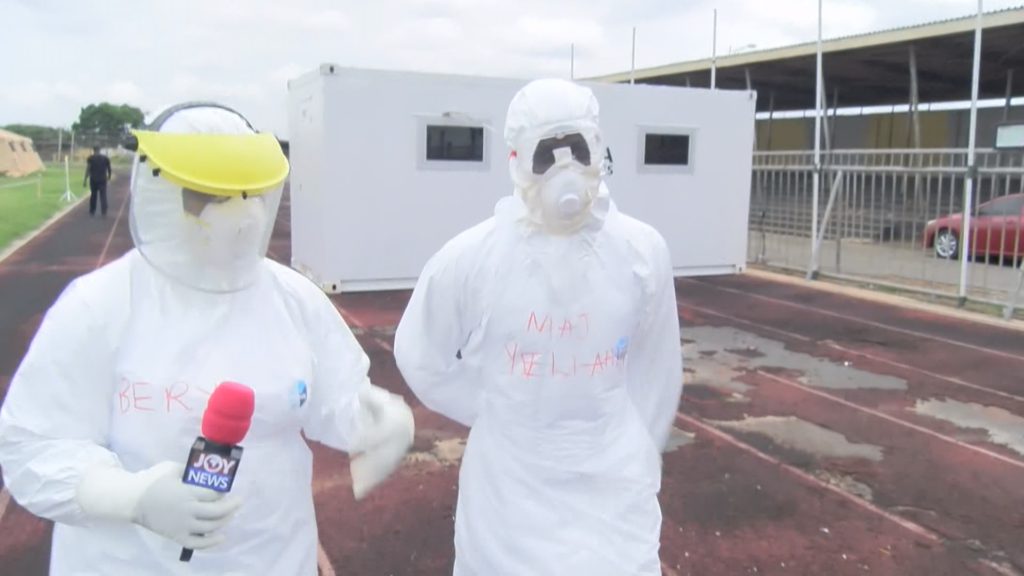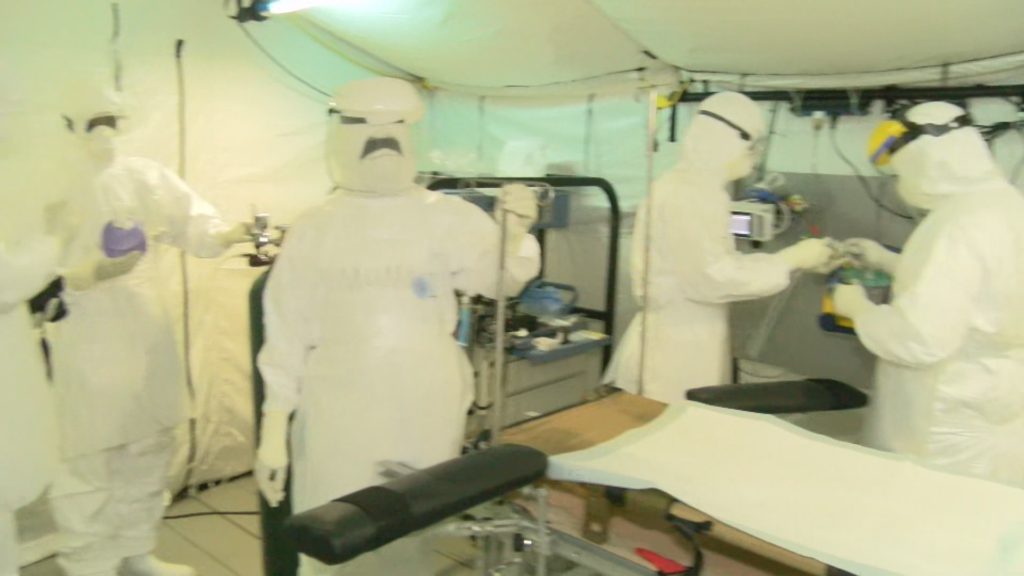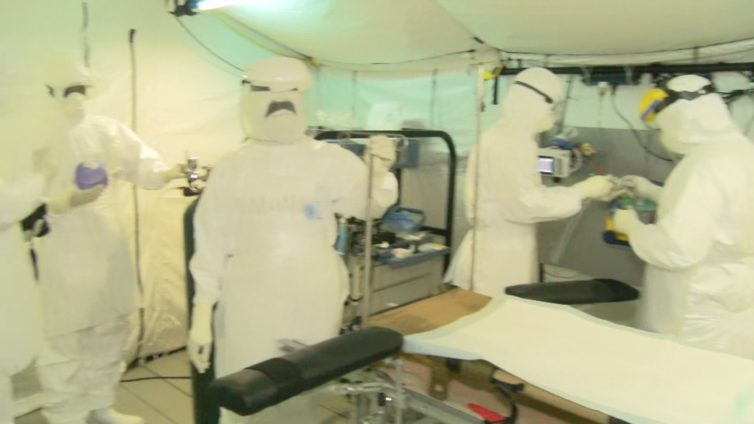All over the world, the novel coronavirus is taking an unprecedented toll on health infrastructure. This pandemic has even overwhelmed developed countries with some of the best healthcare systems in the world crashing.
At the core of the fight against this virus are frontline healthcare workers whose work has even become more dangerous in these times.
In Ghana, there have been concerns by some of them about the lack of or inadequate Personal Protective Equipment (PPE) required to aid them to perform their duties safely and effectively.

It is therefore an undeniable fact that the role of these healthcare workers in the Covid-19 battle cannot be underestimated. But while they continue with their heroic efforts, they also have to grapple with stigma from the communities in which they live.
One of such frontline healthcare workers is Major Mathias Yeli-Ahig, Deputy Camp Commandant at the Elwak Level 2 Covid-19 Isolation and Treatment Centre. He is part of the over 20 health workers deployed from the Ghana Armed Forces to help manage and care for persons at the Elwak Covid-19 Centre.
As a health worker, he understands the hazards associated with the job at hand. “We took an oath to defend this country by air, land, and sea even at the peril of our lives. So when the very moment came for you to put that oath to work or to really stand by the words you said before the Commander-In-Chief, we don’t hesitate. We rather take pride in that opportunity”, he said when quizzed about his view on the dangers associated with the job.

Just like other front liners, he has encountered challenges with regards to the stigma he sometimes faces from friends.
“This video that is being filmed; the next moment you see a friend, he’ll be like; 'boy ibi like last time I see you for TV top, you dey the Covid Centre? Okay, maintain some distance whiles we talk.' You know it’s funny but indirectly the person has shown that level of stigmatisation,” he said in an interview with JoyNews.

“Our greatest concern is the patients. Once they leave here and they have been declared recovered; it means they have recovered. There is no point trying to avoid them. The worst of it is the non-verbal communication”, said Major Yeli-Ahig on the stigma faced by persons who have recovered from the disease.
He explains that the best thing to do is “when they come back, that is when we show them love. We try to learn from their experiences. They will share the stories that they went through so that we will know that indeed what we are up against as a nation is real”.
Latest Stories
-
Residents of Dome-Kwabenya on edge ahead of December elections
25 mins -
Moffy drops new single ‘Wo’, blending culture and modernity
38 mins -
Don’t bring soldiers to polling stations – Martin Kpebu
50 mins -
Ogyeahohuo Yaw Gyebi II retained as President of National House of Chiefs
1 hour -
Embrace ICT to fit in digital world – Ho NYA boss to youth
2 hours -
We don’t want armed soldiers at polling stations – Tanko-Computer
2 hours -
Drama as police corner armed robbers inside locked forex bureau at Lapaz
2 hours -
NEIP CEO to Kwaku Manu: You can support any political party, but stop misbehaving in NPP colours
2 hours -
30% quota for less privileged shows Free SHS is inclusive – Ofosu Nkansah
2 hours -
Nigerian-born conquers childhood hearing loss to become KNUST’s overall best graduating student
2 hours -
ECOWAS Court orders compensation for violations against New Force’s Shalimar Abbiusi
3 hours -
Dreams FC denies allegations of attempting to sign Najeeb Yakubu
4 hours -
Election 2024: ‘Right to free and fair elections non-negotiable’ – Akufo-Addo
4 hours -
Kurt Okraku took out my passport from the U23 squad that travelled to Japan – Najeeb Yakubu alleges
4 hours -
Where hope fails: Ghana’s decaying home for the destitute
4 hours

